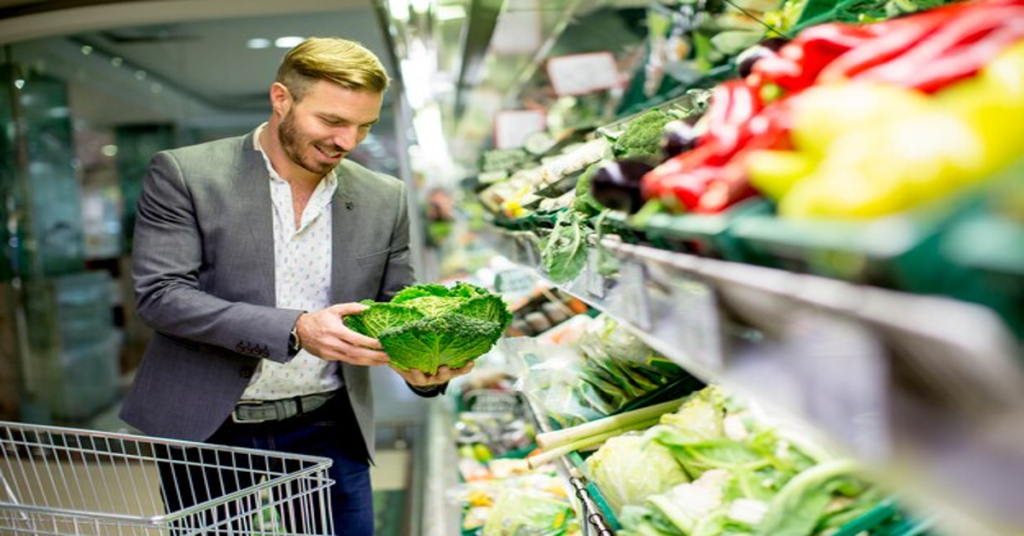The retail and grocery industry has experienced tremendous changes in recent decades. Among the key players in this evolving market is King Soopers, a supermarket chain well-known across the western United States, particularly in Colorado and other nearby states. With its rich history, commitment to innovation, and customer-centric approach, King Soopers continues to be a pivotal player in providing quality groceries and services to millions. This article delves deep into the brand’s history, its growth strategies, technological innovations, sustainability efforts, and its impact on the grocery industry.
1. The Origin and History of King Soopers
King Soopers’ roots trace back to 1947, when Lloyd J. King opened the first store in Arvada, Colorado. King envisioned a supermarket that offered convenience, variety, and customer satisfaction under one roof. His innovative idea quickly took off, and by focusing on value, affordability, and convenience, King Soopers began to establish itself as a community favorite.
In 1983, King Soopers was acquired by The Kroger Company, one of the largest supermarket operators in the United States. This acquisition allowed King Soopers to benefit from Kroger’s advanced supply chain infrastructure, purchasing power, and access to new markets. Over time, the brand has grown into a regional powerhouse, consistently ranked among the top supermarket chains in Colorado.
2. Key Features and Offerings of King Soopers
King Soopers operates under a mission of providing customers with everything they need for their homes and families. Their product offerings go beyond traditional groceries and include:
- Fresh Produce and Organic Options: The company prides itself on offering fresh fruits, vegetables, and organic products to meet the needs of health-conscious consumers.
- Deli and Bakery Sections: Customers can enjoy freshly baked goods, gourmet sandwiches, and ready-made meals that cater to convenience and variety.
- Private Label Products: King Sooper’s carries many private-label brands, including Kroger’s Simple Truth and Private Selection, providing high-quality products at competitive prices.
- Pharmacy and Health Services: Many stores include in-house pharmacies offering medications, immunizations, and health consultations.
- Online Ordering and Delivery Services: With the rise of e-commerce, King Sooper’s embraced technological advancements by offering online grocery delivery and curbside pickup services.
3. King Soopers’ Role in Modern Retail Innovation
In the modern grocery landscape, staying ahead means embracing technology and innovation. King Sooper’s has done just that by integrating cutting-edge solutions to enhance the customer experience.
a) Digital Shopping and Mobile Apps
King Sooper’s has invested heavily in digital platforms. Their mobile app allows customers to browse products, create shopping lists, and access personalized coupons. Shoppers can also use the app to manage prescriptions and receive notifications about refills or discounts on health-related products.
b) Curbside Pickup and Delivery
As consumer preferences shift toward convenience, King Sooper’s introduced curbside pickup and home delivery options. Services such as Kroger’s Boost Membership Program enable customers to receive groceries directly at their doorstep within hours of placing an order.
c) Personalized Offers Using AI and Big Data
Leveraging Kroger’s vast network, King Sooper’s uses AI-powered algorithms to analyze consumer behavior and recommend personalized deals and products. This data-driven approach ensures shoppers get the most value while building customer loyalty.
4. Sustainability Initiatives at King Soopers
With sustainability becoming an integral part of corporate responsibility, King Sooper’s has implemented several environmental initiatives to reduce its carbon footprint and promote eco-friendly practices.
a) Reducing Food Waste
King Sooper’s partners with local organizations to donate unsold food and minimize waste. They also collaborate with food banks and charities to combat hunger in communities.
b) Recycling Programs
Many King Sooper’s locations offer recycling programs for plastic bags and other materials. They also aim to eliminate unnecessary packaging and transition to sustainable materials.
c) Energy-Efficient Stores
Newer stores are designed with energy efficiency in mind, using LED lighting, efficient refrigeration systems, and solar panels to reduce energy consumption.
5. Community Involvement and Philanthropy
King Sooper’s is known for its deep ties to the community. Through various charitable initiatives, the chain consistently gives back by supporting local schools, non-profits, and disaster-relief efforts.
- Food Banks and Hunger Relief: King Sooper’s partners with Feeding America and local food banks to donate millions of meals to underserved communities.
- Educational Grants: The company provides scholarships and educational grants to schools and students, reinforcing the importance of education.
- Disaster Response: During natural disasters, King Sooper’s offers emergency supplies, donations, and logistical support to affected areas.
6. Competitive Position in the Grocery Market
The grocery industry is fiercely competitive, with players like Walmart, Costco, Whole Foods, and Trader Joe’s constantly innovating to capture market share. Despite this, King Sooper’s remains a key competitor due to its ability to balance quality, affordability, and convenience.
a) Competitive Pricing
King Sooper’s connection with Kroger allows them to negotiate better prices with suppliers and offer competitive prices on both branded and private-label products.
b) Diverse Product Range
Unlike discount retailers focusing on low-cost items, King Sooper’s offers a blend of everyday essentials, gourmet foods, and specialty items. This diverse product range helps attract a wide customer base.
c) Loyalty Programs
The King Soopers Rewards Program enables customers to earn points on purchases, which can be redeemed for discounts on fuel. This program not only rewards loyal customers but also increases repeat visits.
7. Challenges and Areas for Improvement
Like any major retailer, King Sooper’s faces challenges, including:
- Supply Chain Disruptions: Global events like pandemics and geopolitical issues can disrupt supply chains and cause product shortages.
- E-commerce Competition: With the rise of online grocery giants like Amazon Fresh, King Soopers must continue innovating to maintain its market share.
- Labor Strikes and Employee Welfare: Recent labor strikes have highlighted employee concerns regarding wages and working conditions, which the company must address to ensure long-term success.
8. Future Outlook: What Lies Ahead for King Soopers
The future of King Sooper’s looks promising, with plans to expand its digital services, adopt more sustainable practices, and explore AI-powered inventory management systems. The company is also investing in automated fulfillment centers to speed up online orders and enhance customer satisfaction.
By maintaining a balance between traditional in-store shopping and modern digital solutions, King Sooper’s aims to remain a vital part of its communities for years to come.
6 FAQs About King Soopers
1. What makes King Soopers different from other grocery chains?
King Soopers distinguishes itself through its strong regional presence, diverse product offerings, personalized digital services, and community-focused initiatives. Its integration with Kroger provides it with a competitive advantage in terms of pricing and innovation.
2. Can I order groceries online at King Soopers?
Yes, King Soopers offers online shopping with delivery and curbside pickup options. Customers can use the King Soopers website or mobile app to browse products, place orders, and schedule delivery times.
3. Does King Soopers have a rewards program?
Yes, the King Soopers Rewards Program allows customers to earn points on purchases. These points can be redeemed for fuel discounts or additional savings on groceries.
4. What sustainability initiatives does King Soopers support?
King Soopers is committed to reducing food waste, recycling, and using energy-efficient store designs. They also collaborate with local food banks to donate surplus food and help communities facing hunger.
5. How does King Soopers support local communities?
King Soopers engages in charitable activities, including food donations, educational grants, and disaster relief programs. They partner with non-profits, schools, and community organizations to support various causes.
6. What measures does King Soopers take for employee welfare?
King Soopers provides benefits like health insurance, retirement plans, and training programs. However, ongoing labor negotiations and employee feedback are considered to further improve working conditions.







